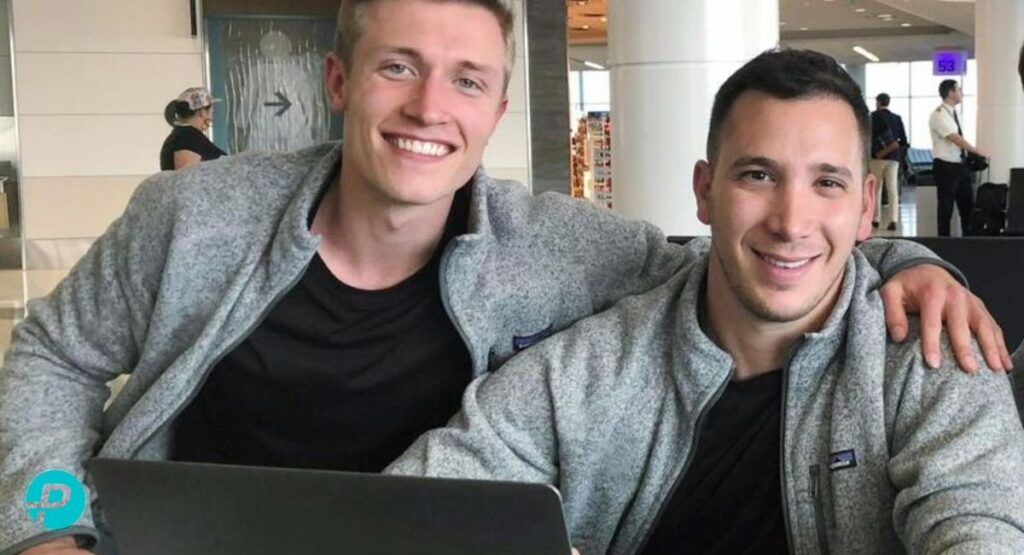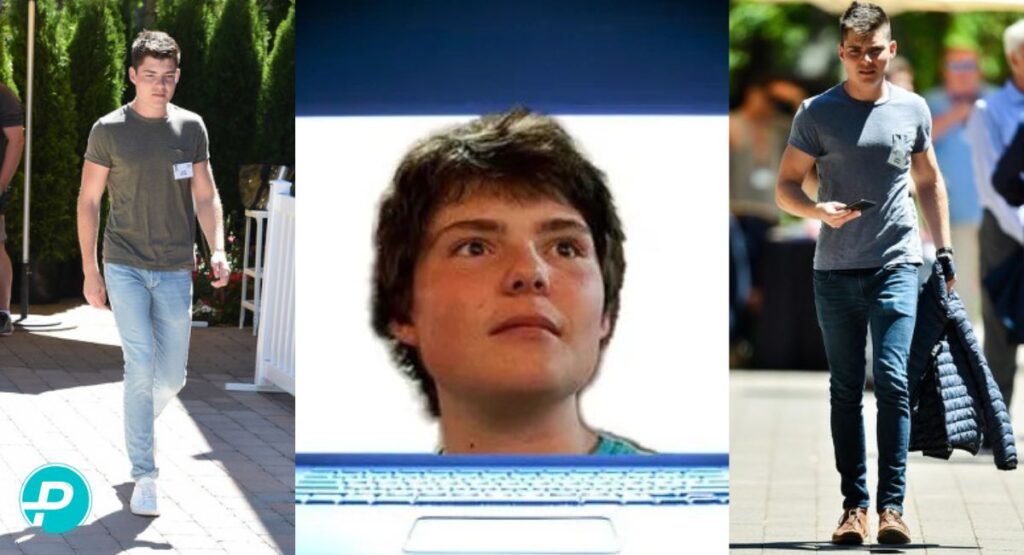Lachy Groom is an investor and tech entrepreneur and co-founder of Physical Intelligence which is an Artificial Intelligence robotics company. One of the previous heads of Stripe, he assisted in the launching of Stripe Issuing and spearheaded efforts on payment around the world. Through his fund LGF, He has invested in more than 200 startups, such as Figma, Notion or Meter. Groom is a frequent co-investor with Sam Altman and has an interest in audacious infrastructure-oriented tech.
Who is Lachy Groom?
One minute of thinking about Lachy Groom is enough to see that he is a force to reckon with and a very silent force in Silicon Valley as well. In theory, Groom is a technophile genius, an investor, and an entrepreneur whose rather low-key but undeniable presence is redefining the Valley landscape. He was born in Australia and he began his meteoric career at an age in which most students are struggling to pass the calculus module. Jump ahead into the present, and Groom is now and foremost a brand of three signatures three hallmarks of his name and his career: the defining experience at Stripe, the widest possible investment portfolio, and, most incidentally, the arrival of Physical Intelligence.
Nowadays, the synonyms Groom and forward-thinking tech leadership go hand in hand everywhere. It is this dedication to infrastructure innovation and his longstanding association with other visionaries like Sam Altman that has resulted in a definition of new-wave tech entrepreneurship.
Lachy Groom and Stripe: A Defining Chapter
Stripe and Lachy Groom establish, in the jargon of modern scholarly tradition, a textbook case of modern business-starting. Groom was the thirty first employee in the firm, and he took a key role in initial globalization activities of the firm.
His job was not confined to an administrative role as he led an engineering team to produce Stripe Issuing, which is also an infrastructure pillar with the help of which organizations will be able to create, manage, and issue both virtual and physical cards. In this role, Groom made Stripe the only choice aimed at the people who needed scalable payment instruments.
In a climate often prided because of its excellence in elite talent, Groom stood out by way of a long period of focusing on innovation, leadership and building lasting systems.
The Rise of a Teenage Entrepreneur
Although the post-success of Stripe, inevitably, has attracted much academic and market coverage, the path towards its achievement was actually initiated via more than a 10-year entrepreneurial journey that took place long before the company was founded. These initial endeavors would be signaled by Lawrence (Lachy) Groom, still in high school yet already showing that he had technical ability and an ability to strategize, too. At 13 he had started and spun off two web-based businesses, PSDtoWP and TheWP.co where he had shown not only an ease with code but also with business decisions.
The resume of Groom as a teenager indicates that he saw a world with these activities in place where you draw up long term strategies and exploit opportunities. Reselling gift cards, creating automation tools on WordPress, he never missed an opportunity to utilize a latent opening in the market.
It is an entrepreneurial gene that sticks with all other subsequent projects, the most notable one being his involvement as co-founder of Physical Intelligence, where a dedication to market-driven design and leading-edge engineering is synthesized.
Lachy Groom Sam Altman Connection
It has become one of the most significant pairings in the modern tech sector and this is another innovative partnership that has existed through the partnership between Lachy Groom and Sam Altman. Their investments together can be explained with an example of Meter, one of their companies that recently raised a $35 million round that was co-led by Altman and Groom.
This collaboration does not however, end in financial capital. It is an architectural vision that is shared that expresses the pathway of infrastructure, artificial intelligence, and sustainable innovation.
What makes this connection more prominent is that their embrace of ambitious projects that would require capital with a long horizon is shared by both, on the one hand, by the current headship of Altman at OpenAI, and on the other, with the investor-founder practice of Groom.
Lachy Groom’s Investment Philosophy

Lachy Groom proved to be one of those figures that switched to early-stage investing after his time at Stripe. He has then created LGF, a fund that has funded a list of powerful technology companies, including Figma, Notion, Superhuman, Vetic and Alt Carbon.
The present investment thesis of Groom is based on so-called boring infrastructure, which is infrastructure that is at the core of the coming internet-driven world. On the contrary to fashion oriented venture capitalists, he strategically invests in companies with complexity in operation but that are vital in the long term success of ventures.
Such a trend comes through in his support of Humaans, a rising human-resources platform, and Meter, an outfit designing contemporary web internet infrastructure in offices.
The Founding of Physical Intelligence
Friends, permit me to lead your minds to a researcher who has moved his line of move into the focal point of robotics. Dr. He is a collaborator no more (and, I hear, interlocutor still), Lachy Groom has founded a new venture, Physical Intelligence. Based in Silicon Valley, the company aims at designing such fundamental models of artificial intelligence as are purposely tailored to the physical agents: robotic manipulators, factory automation systems, and wider deployment into the world of material agents.
An unusual alternative to the agenda of most of the other AI startups of recent years, in which conversational assistants and image recognition are king, Groom and co. have positioned themselves on systems with the ability to move. Not just any smart, but physical computational capability is his declared goal of artificial intelligence. This is to a large degree terra incognita, but what Groom suggests is that precisely this combination of computational intelligence with material performance is what promises to open up trillion dollar parts of the economy.
The Beyond Physical: The New Business of Lachy Groom

Lachy Groom has Physical Intelligence and he has heavy-hitters behind it. Its investors are OpenAI-linked funds, Sequoia Capital, and thinkers across the world.
The company is creating what it calls foundation models – the AI analog of infrastructure – in the physical robotics. It can be compared to GPT of OpenAI, but with robots.
As the line between AI and hardware becomes blurry, Groom is placing a large bet that whatever comes next on the order of scale of an internet will encompass not only digital processing, but also physical action.
The Reason Why Lachy Groom Is Unique in the Silicon Valley
Lachy Groom adheres to the first principles whereas many investors follow the hype. He is famous because of:
- Research on new company
- Hands-on mentorship
- Long-term partnerships
- Some strange sense of time An uncanny sense of time
He has a humble, patient approach that is almost antithetical to glamorous VCs, but it brings in huge returns. His capital is not the only reason why many founders want to find him, but also because of his strategic thinking and product knowledge.
How Lachy Groom is betting on underestimated infrastructure startups
Lachy Groom have created a particular thesis on promoting the so-called unsexy start-up businesses that come up with tools that are necessary. These are backend, HR automation, developer infrastructure and AI-powered platforms.
Examples include:
- Meter: Internet as a tool of contemporary business
- Humaans: A sustainableHR tooling reinvention
- Baseten: ML group infrastruktur
These enterprises are not even viral, but they are the secret engines behind the next wave of technology and Groom knows this much.
Lachy Groom and Future of AI-based Hardware
Arguing that software and AI are insufficient, the central idea of Physical Intelligence Lachy Groom puts forward an audacious one: We need a physical intelligence. Machines have to operate in the real world in order to transform the industries in a revolutionary way.
Groom thinks the most likely place of AI-robotics is the way we are going to make, deliver, and even take care of the people. This is the mantra behind all the decisions made at Physical Intelligence.
Lachy Groom is not only investing in the future with this venture, he is creating it.
Final conclusion: Lachy Groom is The Evening Standard is expanding its legacy.
And he is Lachy Groom, who went from prodigy teen to younger Stripe leader, angel investor, and, currently, the founder of a deep-tech company.
He is as technically deep as he is market-savvy, doesn t afraid of investing where other people would, and partners with the best brains such as Sam Altman so as to build the next foundation of innovation.
Be it as an investor or founder or observer, Lachy Groom is one name you need to get to know and keep on track.
FAQs
1. Who is Lachy Groom?
Lachy Groom is an Australian businessperson, former leader in Stripe, and the founder of Physical Intelligence with a record of investments in large-scale tech companies.
2. So what is Physical Intelligence by Lachy Groom?
Physical Intelligence is an AI company that specializes in robotics that was co-founded by Lachy Groom with the aim to establish foundational models of physical systems such as robotic arms.
3. What is the relationship between Lachy Groom and Sam Altman?
On the one hand, Lachy Groom and Sam Altman have invested in multiple startups together and have a shared vision of long term, infrastructure oriented development.
4. Which companies have Lachy Groom invested in?
Some of the companies that he has invested in include Figma, Notion, Superhuman, Meter, Humaans, Vetic among others via his fund LGF.
5. What makes Lachy Groom a great influence in Silicon Valley?
He is a stand out due to his background of high product knowledge, smart investments, early achievements at Stripe and his liberating vision concerning AI-based robotics.
READ MORE Kyle Lamb: Delta Force, rifle pro


